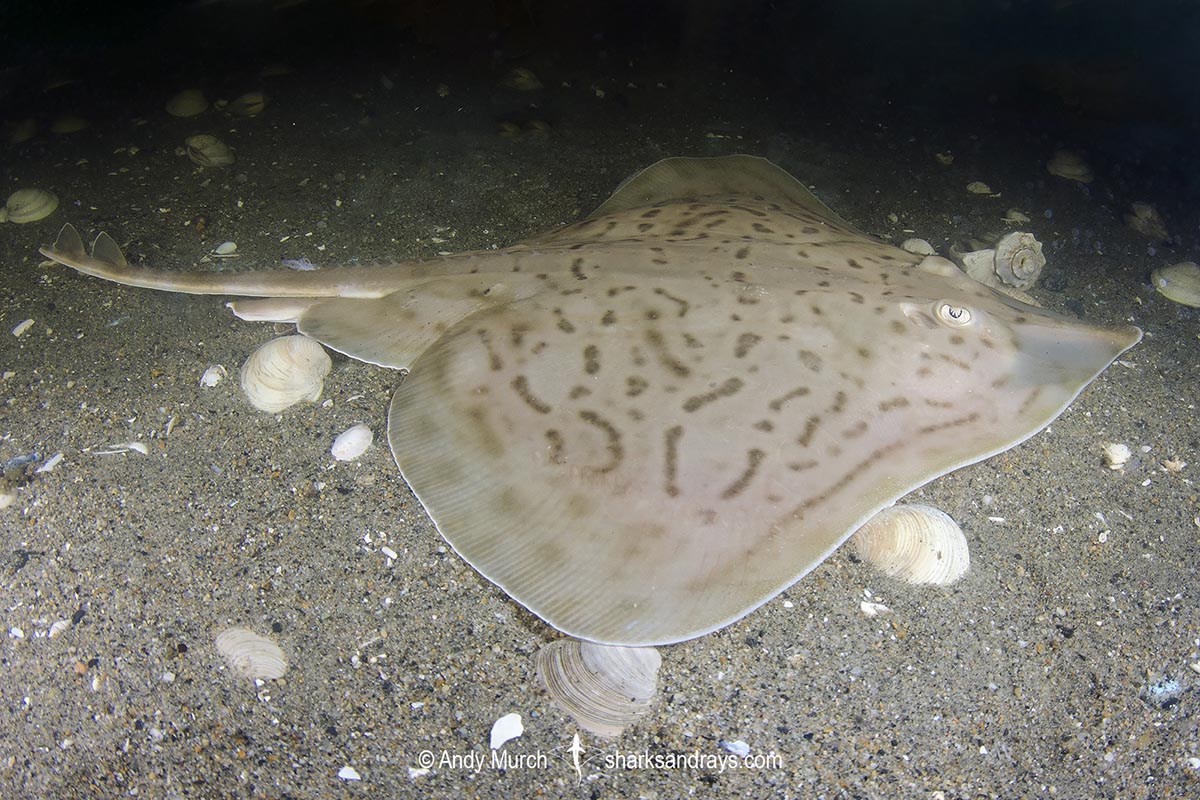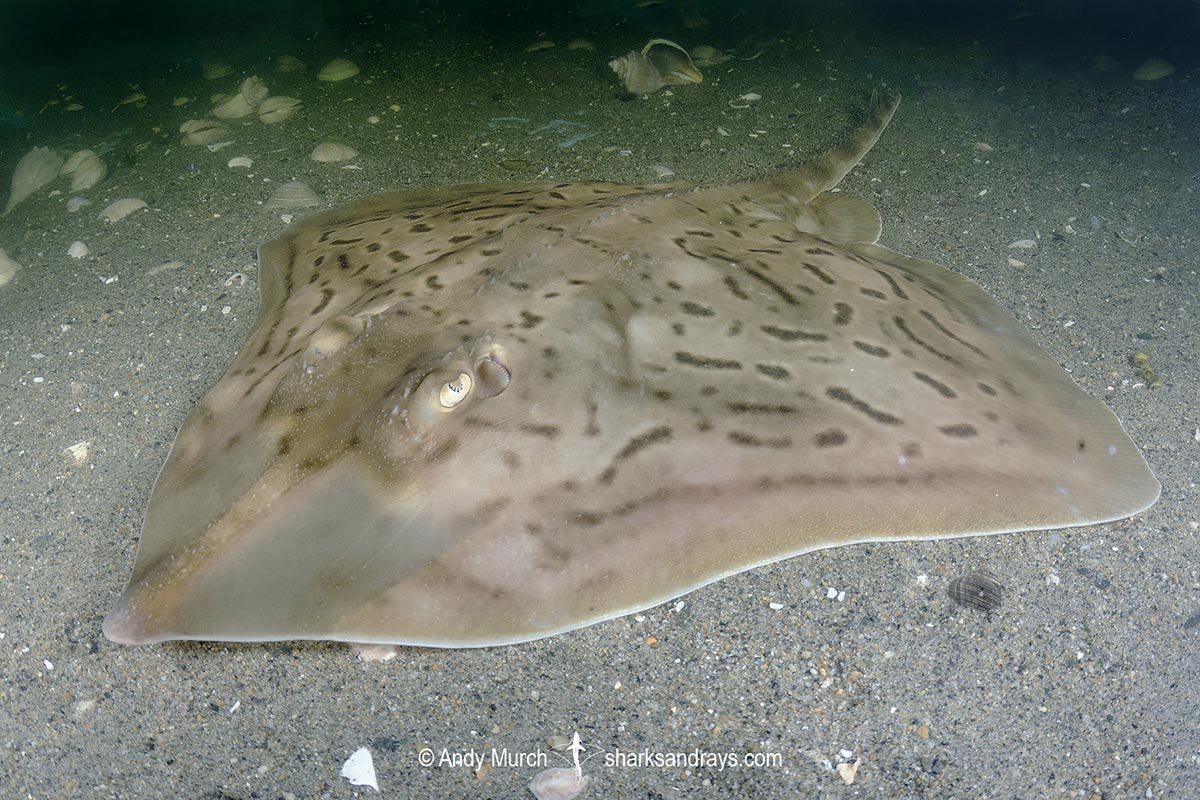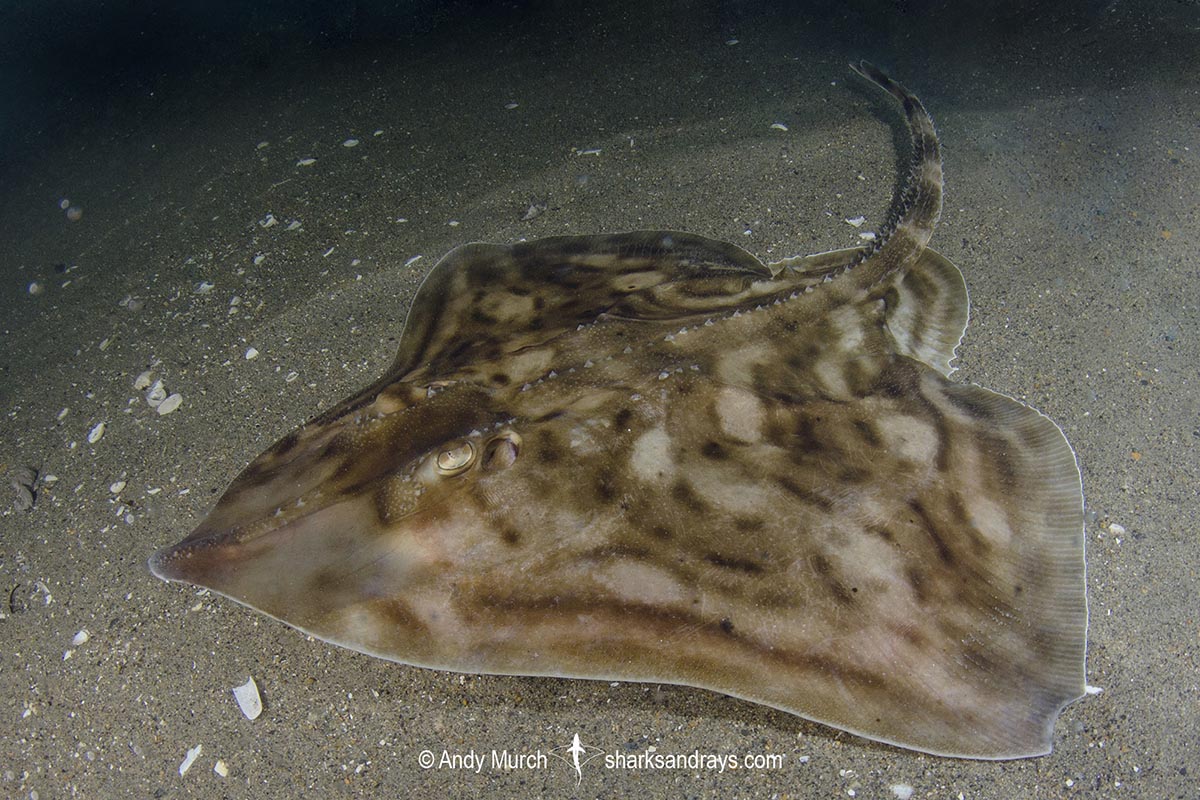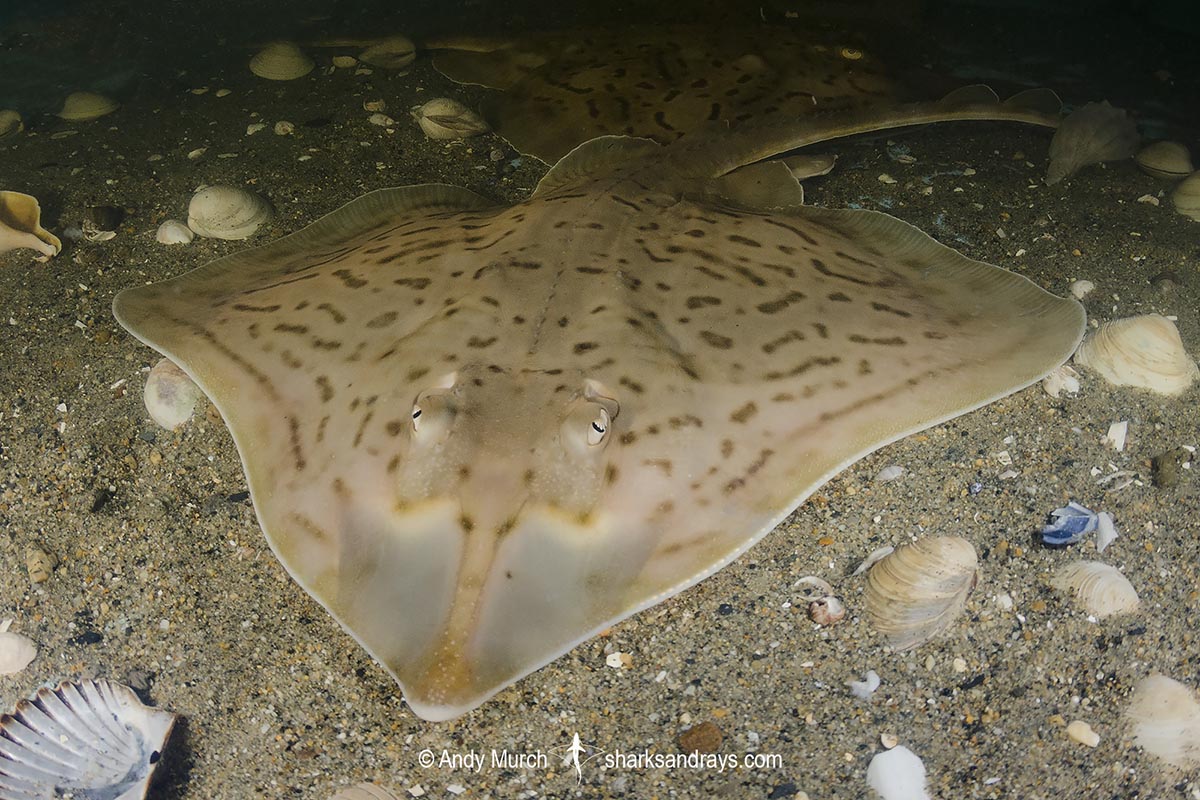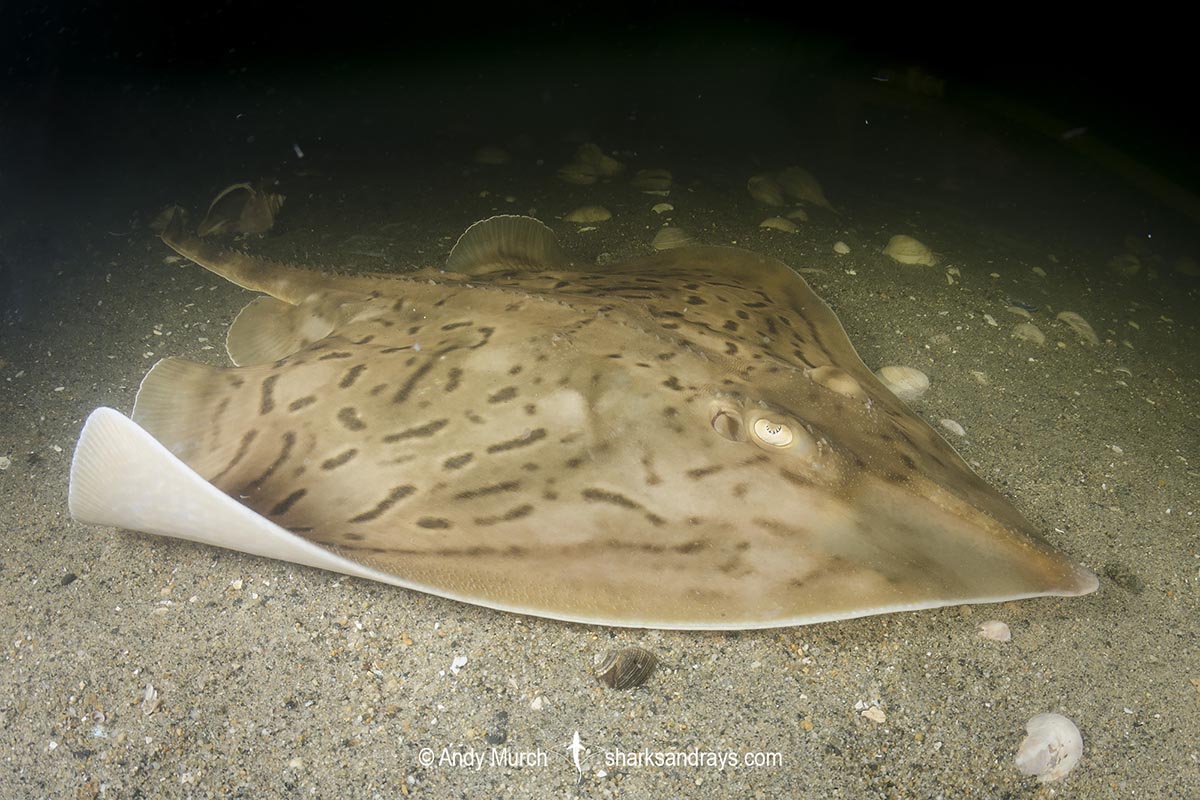Common names
Clearnose skate.
Binomial
Rostroraja eglanteria.
Synonyms
Raia chantenay, Raia desmarestia, Raja diaphanes, Raja eglanteria.
Identification
A medium-sized skate with a wide kite-shaped disc. Disc width ~1.2 x disc length. Snout moderately long, with an approximately right-angular tip. Snout length ~4.8 x orbit length. Eyes small. Anterior margins of pectoral fins almost straight or weakly undulate. Pectoral apices angular. Disc sparsely covered in large granulations in juveniles, mostly absent in adults. Juveniles have 3-4 orbital thorns and one thorn on each shoulder. Adult males have a small patch of malar (cheek) thorns. Midline thorns continuous from nape to first dorsal fin. Lateral thorn rows occur on tail. Ventral thorn patches present on snout and along anterior disc margin. Pelvic fins large, strongly notched. Anterior pelvic lobe well defined but much shorter than posterior lobe. Tail longer than disc, broad-based, tapering strongly to narrow tip. Lateral skin folds on tail well developed. Dorsal fins high, slightly separated, with narrowly rounded or angular apices. Caudal fin small.
Colour
Dorsum greyish-brownish, brown, or blotchy, with a pattern of thin, dark brown lines and spots positioned transversely and diagonally. Tail usually unmarked or with diffuse brown saddles. Dorsal fins unmarked. Ventrum white and unmarked.
Size
Maximum length 84cm. Length at hatching 13-14cm.
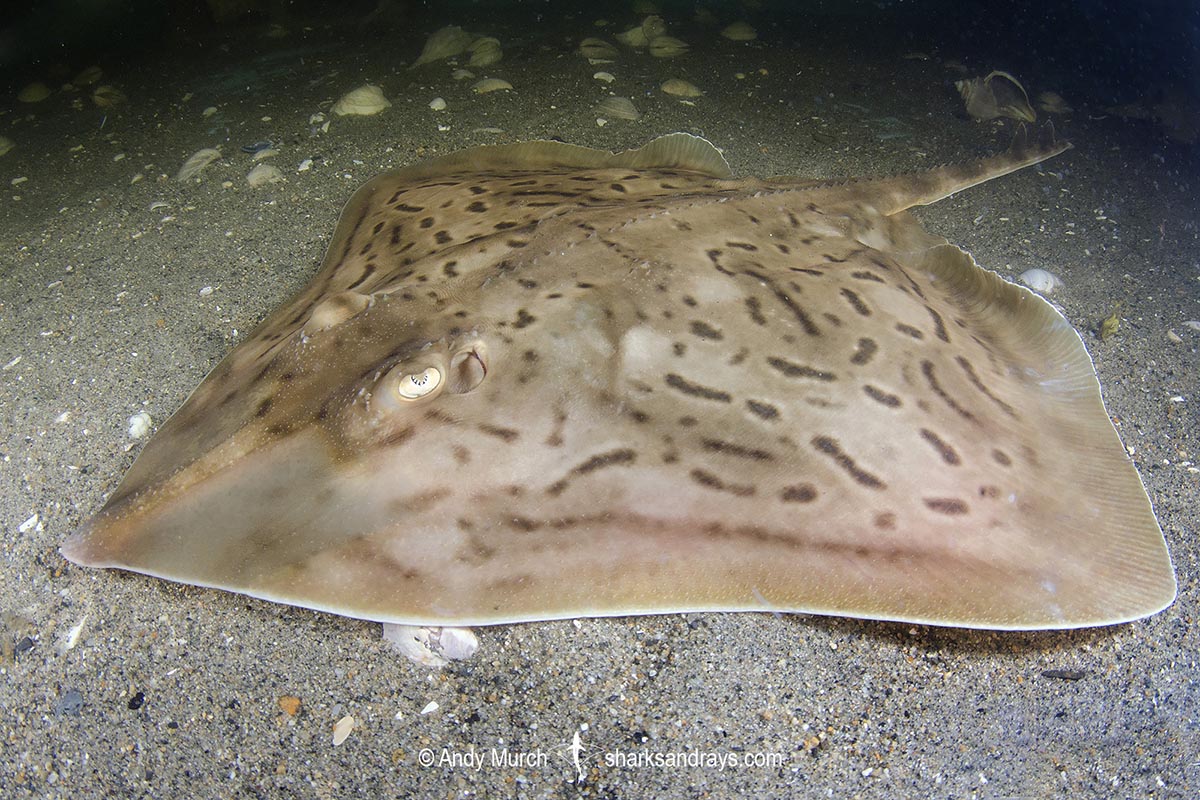
Conservation Status
LEAST CONCERN
The Clearnose Skate (Rostroraja eglanteria) is a bycatch component of demersal trawl and scallop dredge fisheries, but it is usually discarded at sea with low post release mortality. The population is estimated to be increasing.
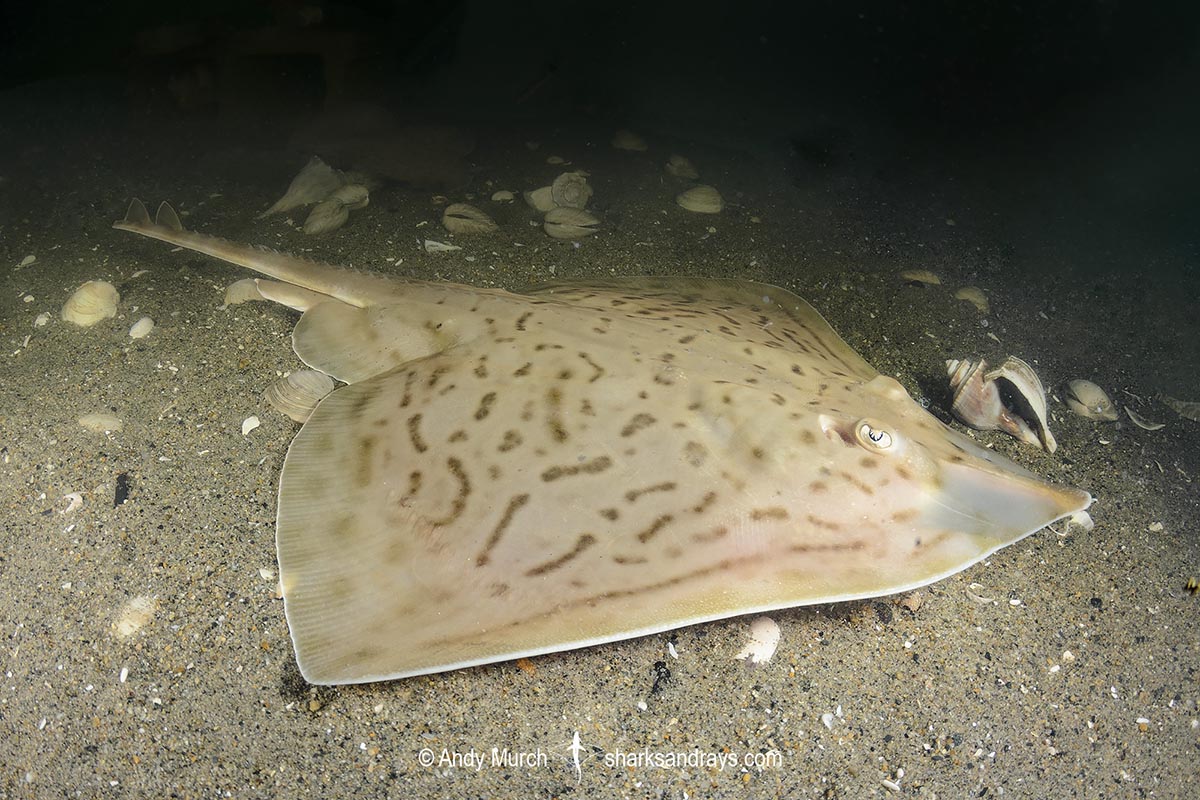
Habitat
Temperate to tropical seas. Demersal on mixed substrates. Occurs inshore, and on the continental shelf to 330m.
Distribution
Western Atlantic. The clearnose skate occurs from the northern Gulf of Mexico and Florida to Massachusetts, USA. Population much sparser south of the Carolinas. Only 62 catch records from the Gulf of Mexico.
Reproduction
Oviparous. Females mature at ~5.8yrs.
Diet
Clearnose skates feed on worms, crustaceans and bony fishes.
Behavior
Poorly known. Sometimes enters estuaries.
Reaction to divers
Probably easy to approach but poorly known.
Diving logistics
The clearnose skate is seen fairly regularly by divers in the northern part of its range i.e. from New Jersey to Massachusetts, but they also stray into shallow water further south. For example, there are occasional sightings at the Blue Heron Bridge; a popular estuarine dive site in southern Florida.
What’s new
View our full list of updates
Similar species
No other skate species from the northwest Atlantic have a bold pattern of thin, transverse lines and spots.

